1月24日,国际计算机学会(Association for Computing Machinery,简称ACM)公布了2023年度国际计算机学会院士(ACM Fellow)名单,以表彰来自世界各地高校、企业和研究机构的研究人员,在算法、计算机科学教育、密码学、数据安全和隐私、医疗信息学以及移动和网络系统等领域的贡献。
作为全世界计算机领域影响力最大的专业学术组织,ACM 所评选的图灵奖(A.M. Turing Award)被公认为是计算机领域的诺贝尔奖,而 ACM Fellow 则是由 ACM 为表彰其会员在计算和信息技术方面所取得的杰出贡献而授予的至高荣誉。获得 ACM Fellow 殊荣的会员不到 ACM 全球会员总数的百分之一。
本年度新入选科学家中共有68人,共有14位华人学者入选
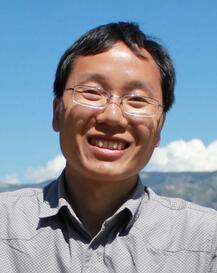
陈海波,上海交通大学特聘教授、并行与分布式系统研究所所长,领域操作系统教育部工程研究中心主任。国家杰出青年基金获得者、IEEE Fellow、ACM杰出科学家,曾获陈嘉庚青年科学奖(信息技术科学)、中国青年科技奖、教育部技术发明一等奖(第一完成人)、全国优秀博士学位论文奖、CCF青年科学家奖、上海交通大学校长奖等。目前担任ACM旗舰杂志《Communications of the ACM》中国首位编委与Special Sections领域共同主席、《ACM Transactions on Storage》编委。曾任ACM SIGOPS ChinaSys主席、ACM SOSP 2017年大会联席主席、ACM SIGSAC奖励委员会委员、ACM SIGOPS Dennis M. Ritchie Award等奖励委员会委员。研究工作也获得华为卓越贡献个人奖、ASPLOS/EuroSys/VEE等最佳论文奖、DSN时间检验奖。他也是OpenHarmony技术指导委员会创始主席。
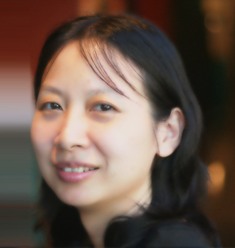
Yingying Chen,罗格斯大学电气与计算机工程系的教授、系主任,和Peter D. Cherasia Faculty学者。同时也在无线信息网络实验室(WINLAB)担任副主任,并主导数据分析与信息安全实验室(DAISY)。
她是美国国家发明家学院院士、IEEE Fellow、以及AAIA Fellow,并获得美国计算机协会(ACM)杰出科学家的荣誉称号。
Xin Luna Dong,Meta Reality Labs首席科学家、IEEE Fellow,负责引领机器学习方面的工作,以打造一个智能的个人助理。
团队在情境智能、结合多种感知方式的对话、搜索、问答、推荐系统和个性化服务、知识的搜集和深度分析等方面进行技术创新与商业化应用。

Wenliang Du,雪城大学教授,ACM Fellow和IEEE Fellow。
近期的研究工作集中于Android操作系统,目标是:(1)发现 Android 操作系统设计中存在的安全隐患,(2)查找移动应用的安全问题并开发出相应的检测工具,(3)为移动设备系统设计更先进的访问控制机制。
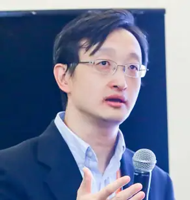
自2022年起,他开始负责自我改进AI的研究,其中包括对LLM(如ChatGPT/GPT-4)进行增强和适应,以用于商业AI系统的开发。

在此之前,他分别于2003年和1999年在马里兰大学获得电气与计算机工程硕士和博士学位,于1997年在清华大学获得电子工程学士学位。
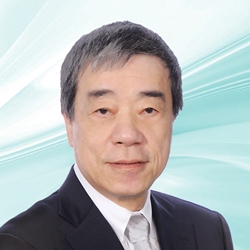
孔祥重,计算机科学家。他的研究主要着重在人工智能跟网络安全,兴趣包括计算复杂度、数据库理论、VLSI 设计、并行计算以及机器学习。
孔祥重院士为美国哈佛大学比尔盖兹讲座教授、台湾人工智能学校校长,专长为信息科学与工程,1978年提出的数组式平行(Systolic Array)理论,对计算机科学产生革命性的影响。
他因为提出脉动阵列(Systolic Computation)的理念、在并行计算领域的贡献,以及将复杂性分析应用于超大规模集成(VLSI)计算领域的工作,而被选为美国国家工程学院的成员。并在2023年获得IEEE TCDP奖,以表彰他在分布式系统中对并发控制和脉动阵列的卓越贡献。
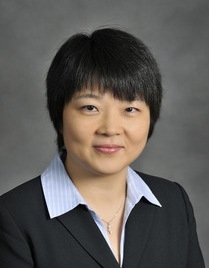
在此之前,她在佛罗里达大学获得电气与计算机工程博士学位。
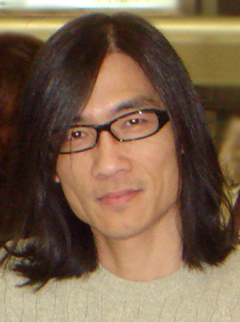
他还是大数据可视化领域的领先研究员。他于1999年组织了美国国家科学基金会/美国能源部关于大型科学和工程数据可视化的研讨会,并在1999年ACM SIGGRAPH会议上组织了大数据集可视化专题小组。
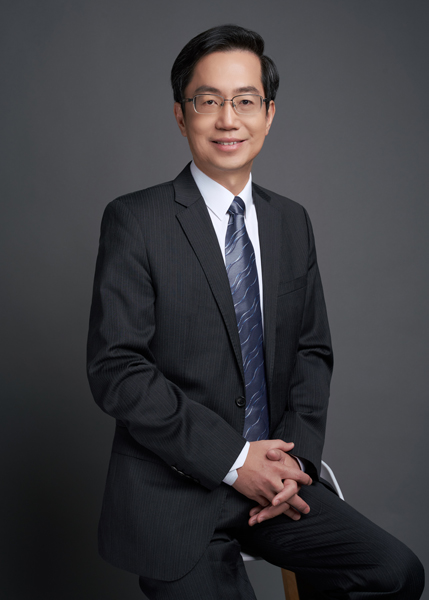
马维英,电气电子工程师学会会士(IEEE Fellow)、美国计算机协会杰出科学家(ACM Distinguished Scientist)。曾任 ACM/Springer 多媒体系统期刊的编委以及 ACM Transactions on Information System (TOIS)期刊的副主编。他还是许多国际会议的组织和程序委员会成员,如ACM SIGIR, ACM Multimedia, ACM CIKM, WWW (WebConf), ICME, CVPR, SPIE Multimedia Storage and Archiving Systems , SPIE Multimedia Communication and Networking 等。他曾在世界级会议和学报上发表逾 350 篇论文,拥有 160 多项技术专利。2018,他入选TOP100的产业科学家,全球排名86。
马维英博士1997年起在惠普实验室工作,从事多媒体自适应传输和移动因特网的分布式多媒体服务系统的研究。2001年,他加入微软亚洲研究院,之后任微软亚洲研究院常务副院长。2017年,马维英出任字节跳动副总裁兼人工智能实验室主任;2020年,马维英加入清华大学智能产业研究院任首席科学家。
马维英1990年获台湾清华大学电气工程系学士;1997年博士毕业于美国加州大学圣芭芭拉分校(UCSB)电气和计算机工程系。
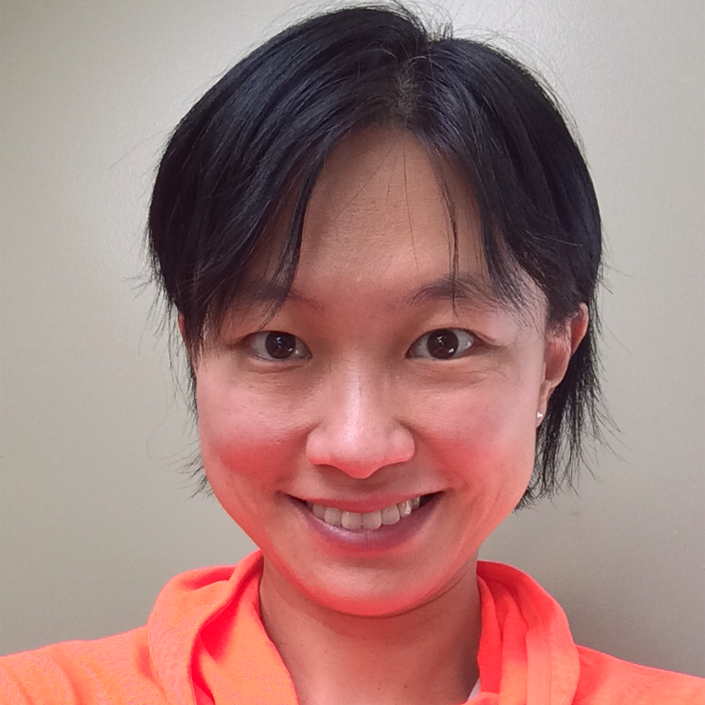
茅斫青,密歇根大学电气工程和计算机科学系教授。
她曾在加州大学伯克利分校获得了学士、硕士和博士学位。NSF早期职业生涯奖、斯隆奖学金的获得者。
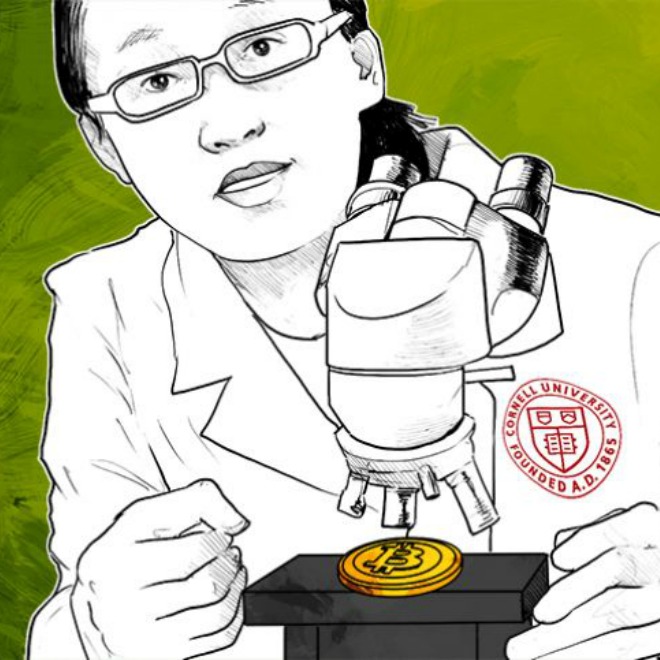
Elaine Runting Shih,计算机科学家和密码学家,她的研究包括区块链和智能合同、安全分布式系统和oblivious RAM模型,以及加密计算的密码技术。
目前担任卡内基梅隆大学的计算机科学和电气工程副教授。并曾在PARC和UC伯克利担任研究人员,在马里兰大学分校担任助理教授,在康奈尔大学担任副教授,2020年秋季回到卡内基梅隆大学任教。
在此之前,她本科毕业于清华,2008年在CMU获得博士学,博士论文为 Evaluating Predicates over Encrypted Data,导师是Adrian Perrig。

他的研究重点是系统安全和数据隐私,专门研究移动和云计算、蜂窝网络和智能系统中的安全和隐私问题,以及人类基因组数据传播和计算中的隐私问题。

|
Aditya Akella University of Texas |
For contributions that improve the performance, efficiency, and robustness of cluster computing |
|
|
Michael Backes CISPA |
For contributions to information security and privacy |
|
|
Vineet Bafna University of California, San Diego |
For contributions to the theory, design, and implementation of bioinformatics algorithms |
|
|
Yoshua Bengio Mila, Université de Montréal |
For conceptual and engineering breakthroughs that have made deep neural networks a critical component of computing |
|
|
Maria-Florina Balcan |
For contributions to the foundations of machine learning and its applications to algorithmic economics and algorithm design |
|
|
Nikhil Bansal University of Michigan |
For contributions to the foundations of approximate and online algorithms, and their connections to mathematics |
|
|
Mikhail Belkin University of California San Diego |
For contributions to modern machine learning theory and algorithms |
|
|
Shai Ben-David University of Waterloo |
For contributions to and research leadership in machine learning theory |
|
|
Vaughn Timothy Betz University of Toronto |
For contributions to the architecture and computer-aided design of field-programmable gate arrays (FPGAs) |
|
|
Ramon Caceres |
For contributions to mobile and edge computing |
|
|
Chandra Chekuri University of Illinois, Urbana-Champaign |
For contributions to approximation algorithms and submodular optimization |
|
|
Haibo Chen Shanghai Jiao Tong University |
For contributions to improving the scalability and security of operating systems and distributed systems |
|
|
Yingying (Jennifer) Chen |
For contributions to the design and application of mobile sensing and mobile security systems |
|
|
Kenneth Ward Church |
For contributions to empirical methods in natural language processing |
|
|
Roger B. Dannenberg Carnegie Mellon University |
For contributions to the field of computer science through innovative computer music systems |
|
|
Xin Luna Dong |
For contributions to knowledge graph construction and data integration |
|
|
Rolf Drechsler University of Bremen |
For contributions to foundations and applications of formal proof techniques in synthesis, test, and verification |
|
|
Wenliang Du Syracuse University |
For contributions to cybersecurity education and research |
|
|
Pradeep Dubey Intel Corporation |
For contributions to emerging compute- and data-intensive applications and parallel processing computer architectures |
|
|
Anja Feldmann Max Planck Institute and TU Berlin |
For contributions to the data-driven analysis of operational networks |
|
|
George Fitzmaurice Autodesk Canada, Inc. |
For contributions to human-computer interaction and tangible user interfaces |
|
|
Fedor Fomin |
For contributions to the development of parameterized complexity and exact exponential algorithms |
|
|
Jeffrey S. Foster Tufts University |
For contributions to program analysis and techniques to build more reliable and secure software |
|
|
Jianfeng Gao Microsoft |
For contributions to machine learning for web search, natural language processing, and conversational systems |
|
|
Ian Goldberg University of Waterloo |
For contributions to the development and deployment of privacy enhancing technologies |
|
|
Sumit Gulwani |
For contributions to AI-assisted programming for developers, data scientists, end users, and students |
|
|
Zhu Han University of Houston |
For contributions to distributed and autonomous management for large-scale communication networks |
|
|
Geoffrey Hinton University of Toronto |
For conceptual and engineering breakthroughs that have made deep neural networks a critical component of computing |
|
|
Nicole Immorlica Microsoft Research |
For contributions to economics and computation including market design, auctions, and social networks |
|
|
Trent Jaeger Pennsylvania State University |
For contributions to research and education for operating systems and software security |
|
|
Kenneth Richard Koedinger Carnegie Mellon University |
For the advancement of AI models of human learning and developing intelligent tutors to aid students |
|
|
Andreas Krause |
For contributions to learning-based decision making under uncertainty |
|
|
Christopher Ian Kruegel |
For contributions to systems security, malware detection, and vulnerability analysis |
|
|
H.T. Kung |
For contributions to computer architecture and concurrency control for parallel computation |
|
|
Yann LeCun |
For conceptual and engineering breakthroughs that have made deep neural networks a critical component of computing |
|
|
Tim Berners-Lee |
For inventing the World Wide Web, the first web browser, and the fundamental protocols and algorithms allowing the Web to scale |
|
|
David Lo |
For contributions to synergizing artificial intelligence and software engineering for human-in-the-loop automation and software analytics |
|
|
Wenjing Lou |
For contributions to information and network security |
|
|
Kwan-Liu Ma |
For contributions to and leadership in large-scale data visualization research |
|
|
Wei-Ying Ma |
|
|
|
Z. Morley Mao |
For contributions to Internet security and performance |
|
Deborah McGuinness |
For contributions to knowledge technologies including ontologies and knowledge graphs |
|
Gerard G. Medioni Amazon |
For contributions to computer vision and its consumer facing applications |
|
Sharad Mehrotra |
For contributions to the fields of data management, multimedia information retrieval, and emergency response |
|
Seffi Naor |
For contributions to online, randomized, and approximation algorithms |
|
Shrikanth Narayanan |
For contributions to speech, language, multimedia processing, affective computing, and their human-centered applications |
|
Natasha Noy |
For contributions to open data, data discovery, and Semantic Web |
|
Corina S Pasareanu |
For contributions to the development and application of symbolic execution and compositional verification |
|
Massoud Pedram |
For contributions to low power design of VLSI circuits and to energy efficient computing |
|
Anand Raghunathan |
For contributions to the design of energy-efficient computing systems |
|
Benjamin Raphael |
For contributions to computational biology including algorithms in cancer genomics/evolution and biological network analysis |
|
Dana Ron |
For contributions to sub-linear time approximation algorithms |
|
Tim Roughgarden |
For contributions to algorithmic game theory |
|
David Sankoff |
For contributions to research and leadership in computational biology and bioinformatics |
|
Stefan Saroiu |
For contributions to memory security and trusted computing |
|
Albrecht Schmidt |
For contributions to human-computer interaction, ubiquitous computing and implicit interaction, and leadership in ACM SIGCHI |
|
Björn W. Schuller |
For empirical and theoretical contributions to the development of computer audition, affective computing, and health informatics |
|
Stefan Saroiu |
For contributions to memory security and trusted computing |
|
Phoebe Sengers |
For contributions to critically-informed human-computer interaction and design. |
|
Elaine Shi |
For contributions to the scientific foundation of oblivious computation and decentralized blockchains |
|
Noah Snavely |
For contributions to computer vision and computer graphics |
|
Ram D. Sriram |
For contributions in building innovative computational tools and automation techniques in engineering and health care |
|
Steffen Staab |
For contributions to semantic technologies and web science, and distinguished service to the ACM community |
|
Alexander Szalay |
For contributions in systems, big data, open data, and for service to the community |
|
Manik Varma |
For contributions to machine learning and its applications |
|
XiaoFeng Wang |
For contributions to systems security and privacy |
|
Kilian Weinberger |
For contribution to machine learning and deep learning research |
|
Emmett Witchel |
For contributions to high-performance, concurrent, and secure systems |
|
Xing Xie |
For contributions to spatial data mining and recommendation systems |

